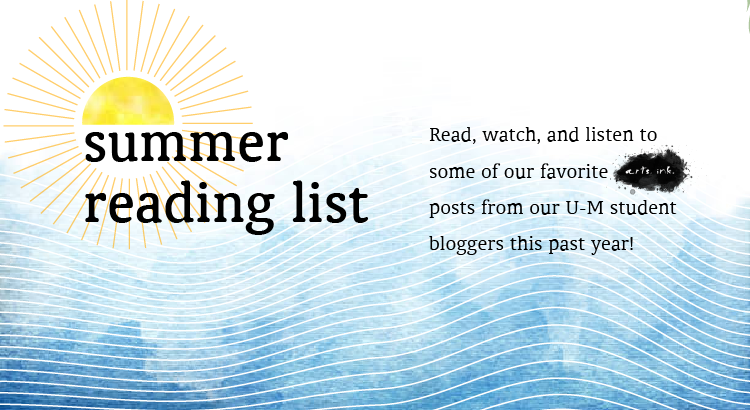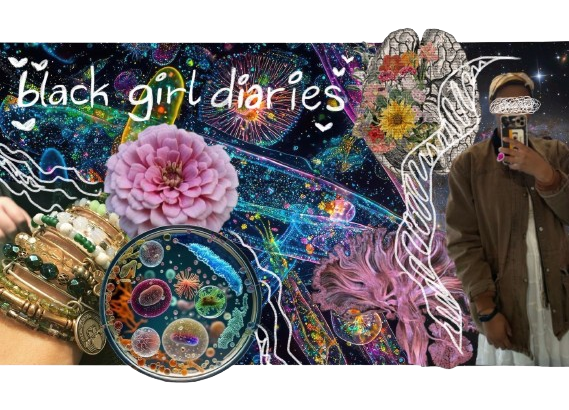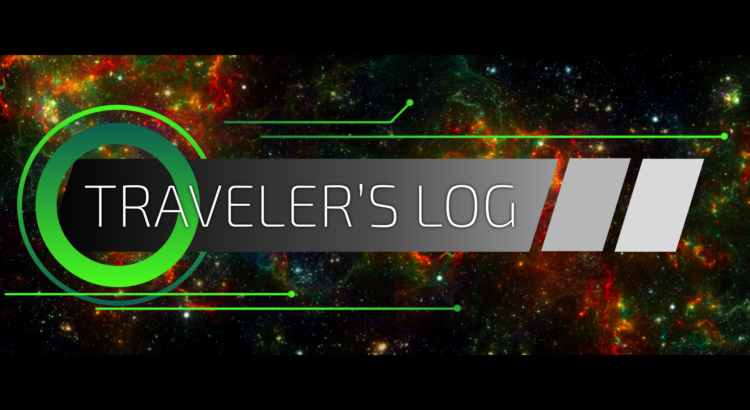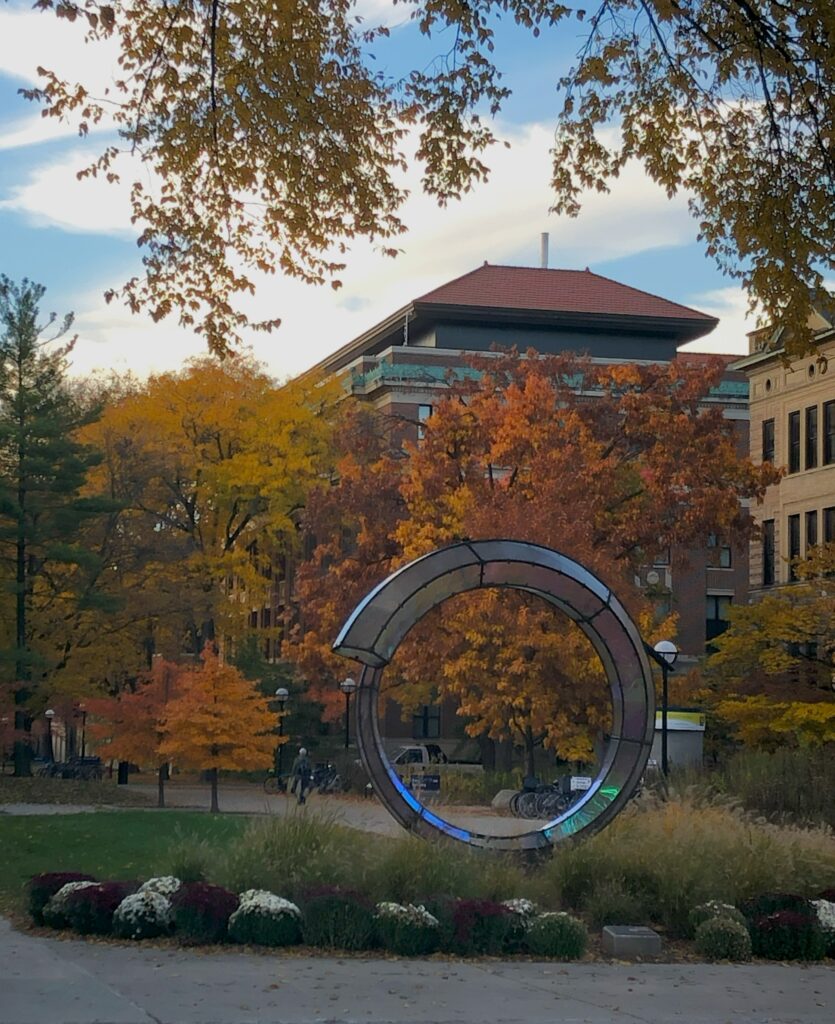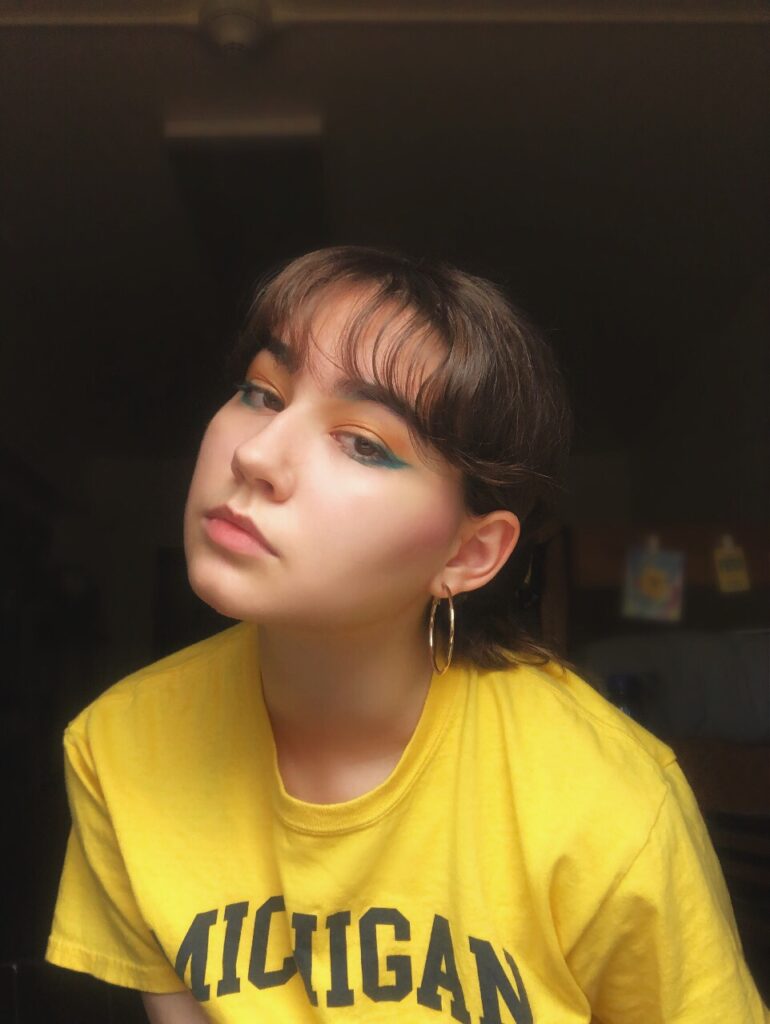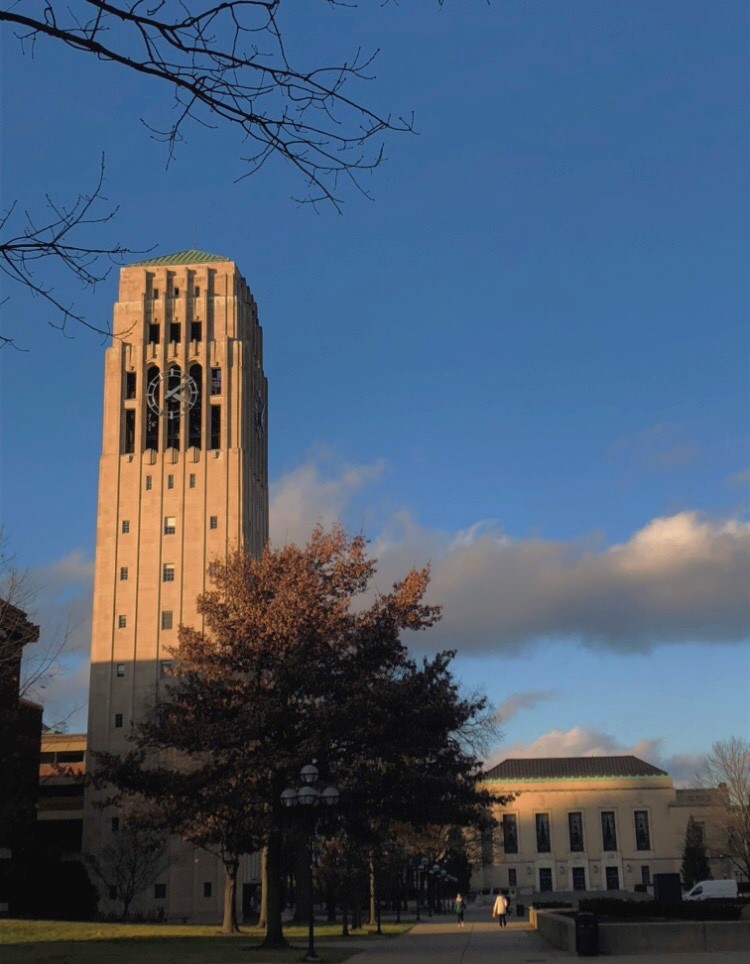Four Years
tears shed with bright panic
at the sight of a new home
alone in a mask
how can one make friends
six feet apart
I applied for a job
writing poems to regret (not now, but later)
I learned that I hadn’t learned Spanish (or English)
I would start again
in a cold sweat at 1:00 am
as my roommate dry heaved liquid fun
into a trashcan
I met a person
who asked to sleep with me
I didn’t.
I made art,
spent holidays at home, where things felt wrong
but never went on as long as I hoped
had my future read
embrace who you are, who you love, they said
I did neither at 19
in Chicago, I was low below the river
back at work, then to school
again, I met a roommate
Halloween was football and fishnets
nightlife and laughter in Grand Rapids
I met more writers, more friends
turned 20
watched my favorite person graduate
in the fresh June heat
I felt happy for the first time in a long time
I applied for a job
wrote a book I’ll never publish
fed goats and peeled through corn stalks
ran a club, felt grown
hit another low in the ER (I took my notes to study)
before turning 21
drank and said goodbye
hit lower than the ground
I thought you couldn’t fall from the floor
stood up, took off to my last year
cried for different reasons
looked long and hard in the mirror
wondering where the time went
whether it was worth it
I’d like to say it was, so I will
It was worth it.
All of this to say, I am enormously lucky to have lived and grown here. Although my undergraduate years were hard (harder than I anticipated), I have gained the confidence, companionship, and courage to keep reaching. I want to extend my thanks to the arts, ink. program director for providing me with the opportunity to express myself on this website. Thank you to everyone who has read my writing. Your support means more than you know. With that, I hope to see you around. Go Blue!
